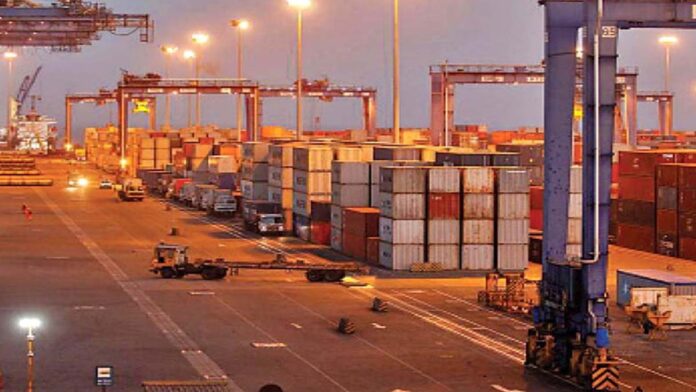ISLAMABAD: Commerce Minister Syed Naveed Qamar said on Wednesday that imposing the ban on imports was a wrong policy decision, extending his support for lifting the ban at the earliest.
Qamar said that the import ban was not a well-thought-out initiative by the government but it was aimed at temporary restraining imports.
He said that the promotion of exports by tapping new markets and expanding the export basket by reducing trade barriers was the ultimate way forward.
Read also: Bank advances to private sector swell by 142pc
For the last fiscal year, the previous Pakistan Tehreek-e-Insaf (PTI) government had targeted to restrict imports at $55 billion, which shot up to $80 billion.
Prime Minister Shehbaz Sharif had initially given directives to contain imports by $2 billion
per month.
The Ministry of Commerce and the Federal Board of Revenue (FBR) prepared a plan to cut imports by $984 million a month through the ban and increase in regulatory duties.
Finance Minister Miftah Ismail was against imposing restrictions on imports and desired that the regulatory duties be
significantly increased.
The Economic Coordination Committee of the cabinet on Tuesday allowed clearing those goods that had arrived in Pakistan in contravention to the ban till June 30.
Tariff and non-tariff trade barriers put serious constraints on growth and sustainability, said Esther Perez Ruiz, Resident Representative of the International Monetary Fund (IMF) while advocating free trade.
Esther – a Spanish national – said that Spain’s integration with the EU in the 1980s and 1990s was a political aspiration for the country, which led to a massive economic transformation. However, Pakistan’s exports-to-GDP ratio reduced from 14% in 1990 to 10% in the 2000s.
The IMF resident representative said that Pakistan’s per capita GDP growth was very low compared with its
regional competitors.
To realise the export potential, Pakistan needs proactive policies: exchange rate flexibility, efficient allocation of resources, elimination of subsidies and creating a business-friendly environment,
she added.
The commerce minister said that politics had been the biggest impediment to regional trade. There are sanctions against Iran, Afghanistan faces security and economic issues, then there is India-Pakistan politics and there are also protagonists and antagonists of the China-Pakistan Economic Corridor (CPEC), said Qamar.
“It is virtually the Arabian Sea that is neutral to us for trade,” he said while explaining the limitations on regional trade.
He said that Pakistan was the big beneficiary of the GSP Plus scheme, hoping to win an extension for the next 10 years.
The minister said that fears of global recession might have implications for exports but hoped that unlike last year, this year there would be an increase in exports volume rather than only getting benefit from the higher global commodity prices.
Indonesian Ambassador Adam Mulawarman Tugio said that Pakistan should try to expand its trade with the Association of Southeast Asian Nations (Asean) by shifting its current strategy to deal with only individual members of Asean.

